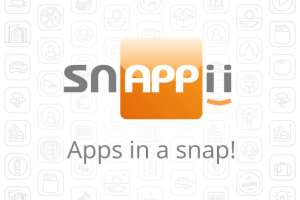 “The reason that Apple is able to create products like the iPad is because we’ve always tried to be at the intersection of technology and the liberal arts,” Steve Jobs said. Jobs’ lifelong interest in the humanities gave Apple a human touch. Books, Jobs favorite movies and music often got in the presentations of new Apple products. And we offer 9 books Steve Jobs thought everybody should read. This list will help you understand the mindset of the Apple founder.
“The reason that Apple is able to create products like the iPad is because we’ve always tried to be at the intersection of technology and the liberal arts,” Steve Jobs said. Jobs’ lifelong interest in the humanities gave Apple a human touch. Books, Jobs favorite movies and music often got in the presentations of new Apple products. And we offer 9 books Steve Jobs thought everybody should read. This list will help you understand the mindset of the Apple founder.
‘King Lear’ by William Shakespeare
Job’s literature affection began in last years of high school. “I started to listen to music a whole lot,” he tells Isaacson, “and I started to read more outside of just science and technology — Shakespeare, Plato. I loved ‘King Lear.”
“King Lear’ offers a vivid depiction of what can go wrong if you lose your grip on your empire, a story surely fascinating to any aspiring CEO,” says Daniel Smith, author of “How to Think Like Steve Jobs.”
‘Moby Dick’ by Herman Melville
“Moby Dick”- the deeply American novel by Herman Melville. We can find some connections between Captain Ahab, the main character of the book, and Jobs. Captain Ahab said a whale-ship had been his Yale College and Harvard. Steve Jobs did lots of his learning from direct experience.
‘The Collected Poems of Dylan Thomas’ by Dylan Thomas
Jobs discovered a love for verse in late high school. One of his favorite poets was a Welsh writer Dylan Thomas. “How To Think Like Steve Jobs” author Daniel Smith says that Thomas’ poems “drew him in with its striking new forms and unerringly popular touch.”
‘Be Here Now’ by Ram Dass
Apple’s slogan is “Think different”. In late 1972, Jobs had just started at Reed College and became interested in Spirituality. “Be Here Now,” a guide to meditation by Ram Dass, affected Jobs greatly. “It was profound,” Jobs said. “It transformed me and many of my friends.”
‘Diet for a Small Planet’ by Frances Moore Lappe
Steve Jobs was a staunch vegetarian since his youth. ‘Diet for a Small Planet’ was a breakthrough. “That’s when I pretty much swore off meat for good,” Jobs told Isaacson. It’s a book about protein-rich vegetarianism that went on to sell 3 million copies. it gave him permission to experiment with extreme diets.
‘Mucusless Diet Healing System’ by Arnold Ehret
Jobs’ diet grew more adventurous after reading “Mucusless Diet Healing System” by early-20th-century German dietitian Arnold Ehret. He advised the exclusion of unnatural diet food: spices, synthetic vitamins and minerals. And also he recommends practices like “intermittent juice fasting.” “I got into it in my typical nutso way,” Jobs tells Isaacson. But before you follow the advices of this book, you need to know that Ashton Kutcher tried the all-fruit diet while prepping for his role as Steve Jobs, and it landed him in the hospital.
‘Autobiography of a Yogi’ by Paramahansa Yogananda
Jobs read “Autobiography of a Yogi” by Indian yoga guru Paramahansa Yogananda when he was in high school. The book remained a major part of Jobs’ life. He reread it every year.
‘Zen Mind, Beginner’s Mind’ by Shunryu Suzuki
Jobs attended classes led by Shunryu Suzuki, the Japanese monk who authored “Zen Mind, Beginner’s Mind” in the 70s. Jobs went hard into Zen. “Zen has been a deep influence in my life ever since,” Jobs told Isaacson. “At one point I was thinking about going to Japan and trying to get into the Eihei-ji monastery, but my spiritual advisor urged me to stay here (in California).”
‘The Innovator’s Dilemma’ by Clayton M. Christensen
“Innovator’s Dilemma” is a book by legendary Harvard Business School professor Clay Christensen. Through this book, Jobs realized that in order to get something new it is necessary to destroy the old successes. Jobs said in his explanation of why it needed to embrace cloud computing: “It’s imporant that we make this transformation, because of what Clayton Christensen calls “the innovator’s dilemma,” where people who invent something are usually the last ones to see past it, and we certainly don’t want to be left behind.”

 Login
Login

